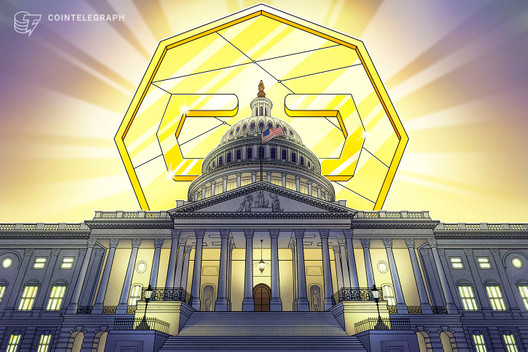Congressman Calls Digital Dollar Hearing ‘Encouraging,’ but Look Out for Privacy
Congressman Warren Davidson recaps yesterday’s hearing on the digital dollar, which seemed to reach new consensus across party lines — but the devil is in the details.
In a June 11 hearing before the Congressional Fintech Task Force, everyone seemed to agree that they could improve financial inclusion by giving people more direct access to FedAccounts, which may operate using a digital dollar. What exactly a digital dollar looks like will probably be more controversial.
Unity at yesterday’s hearing was encouraging
Congressman Warren Davidson (R-OH), a member of the Fintech Task Force as well as a noted crypto advocate, was pleased with the tone of the hearing, overall. He was at earlier hearings for Facebook’s Libra, which he saw as turning into an indictment of Facebook rather than a conversation about crypto.
“It’s not really partisan in terms of where people are on this issue,” Davidson told Cointelegraph. “It was encouraging to have a meeting where it’s not an outright rejection of it because it’s a threat to the dollar — because it is the dollar.”
In earlier conversations, Democrat members of the Financial Services Committee were especially concerned about crypto as a threat to U.S. sovereignty. Referring to Chairwoman of the full committee Maxine Waters (D-CA), who authored a bill central to yesterday’s conversation, Davidson said:
“The fact that a version of this was included in the previous Democrat bill says that for some this is a priority, including the Chairwoman.”
Privacy remains a concern
Davidson was especially concerned that what everyone is talking about when it comes to a “digital dollar” did not include some of the key advantages of the existing dollar, including privacy and autonomy: “That’s the strength of cash, you have to have that characteristic that you’re not really filtering transactions.”
Consequently, Davidson thinks that reaching consensus as to what a dollar means will take more time:
“I think there’s still a long way to go until a shared vision of what this would look like. For me, the momentum on so many of these issues seems to be to further erode privacy that, if we do it, we do it somewhat the opposite, that we reclaim some of the privacy that’s been lost. That’s the beauty of blockchain.”
Along the same lines, Kristin Smith of the Blockchain Association noted, “For policymakers, it’s important to know that the term ‘digital dollar’ means different things to different people.”
In advance of the hearing, witness and former CFTC Chairman J. Christopher Giancarlo told Cointelegraph to look out for the range of expertise among the task force:
“There are members that are really far afield in their thinking about blockchain technology, distributed ledger technology. And in crypto assets and a U.S. CBDC, there are others who are more focused on specific concerns of privacy, of security.”




